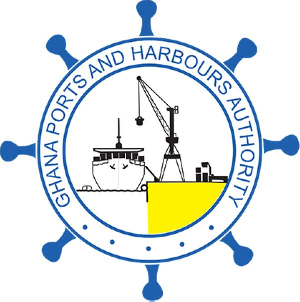Opinions of Thursday, 4 May 2017
Columnist: Nana Yaw Osei, Minnesota, USA
President Akufo-Addo and the ghost names: Observer’s appraisal
“President Nana Addo Dankwa Akufo-Addo says the country has been saved the amount of GHC443 million following Finance Ministry's suspension of salary payment to some 26,589 workers in April, 2017” (Source: myjoyonline.com, May 1, 2017).
Congratulation Mr. President, this is a step in the right direction! Many Ghanaians have lamented over the rate of graduate unemployment in the country. The government of Ghana must embark on ‘operation save money and create jobs for the youth’. However, we must not limit operation save money to harmless teachers and other public sector workers. Every now and then, governments disturb teachers in particular with payroll monitoring survey. The government must focus on the salaries of public institution heads to save funds.
Trait leadership theory claims that when there is a wide gap between intelligent quotients (IQ) of a leader and that of his followers, it leads to counter-production. In the same way when there is a wide gap between the salary of a leader and that of his subordinates, counter-production cannot be overlooked. It is upon this assumption that President Akufo-Addo and his economic management team must immediately employ about 1000 graduates into public organisations by decreasing the salaries of the Chief Executive Officers (CEOs) of state institutions as well as that of their deputies.
Per Professor Dora Francisca Edu-Buandoh’s committee report, the CEO of COCOBOD takes home GHC 75,102 ($18,096.7), his deputy GHC 42,000 ($10,120) per month. Other monthly salaries are, the Governor of Bank of Ghana: GHC 89,909 ($ 21,664.8), the CEO of Ghana Revenue Authority: GHC 88,102 ($21,229.3), SSNIT CEO: GHC 76,606 ($18,459.2), CEO of Agricultural Development Bank: GHC 68,707 ($16,555), CEO of National Investment Bank: GHC 65000 ($15662), CEO of Bulk oil storage and transportation company limited: GHC 62,000 ($14,939.7), CEO of TOR: GHC 56,000 ($13,493.9), CEO of Ghana Commercial Bank: GHC 55000 ($13,253.0) and CEO of EOCO: GHC 44909 ($10821.4). (Source: peacefmonline.com March 30, 2017).
So Mr. President the focus must not only be on the payroll of innocent civil servants. What is more irritable is that the president himself - with all these insults, stress and abuse - takes GHC 30359 ($7,315.4) per month.
The foregoing salary information of state institution heads present some hunches. What kind of managerial expertise are these CEOs bringing on board? How much would the father of scientific management himself, F. W. Taylor have taken? Who are responsible for these huge salaries? Are these not the same attitudes that collapsed Nkrumah’s public corporations? A monthly salary of a High School graduate teacher with a masters’ degree in management with about 15 years teaching experience at Royal New Drobo Secondary School (RONEDRESS) is about GHC 1500 ($ 361.4). A masters’ degree holder deputy CEO at COCOBOD with the same 15 years of experience smiles home with $10,120 monthly. This is unacceptable. Besides, about $8000 salary gap between COCOBOD CEO and his deputy is not appropriate as it could affect job performance.
Let me make a simple comparison between the Governor of Bank of Ghana’s monthly pay of $ 21664.8 with his counterpart in the Republic of South Africa. As of 2013, the annual salary of Republic South African Reserve Bank’s governor was 5 million rand ($ 76,606). “South African Reserve Bank Governor Gill Marcus’s salary rose 4.5 percent last year, less than inflation. Marcus’ pay for the 12 months through March increased to 5 million rand from 4.8 million rand a year earlier, the Reserve Bank said in its annual report released in Pretoria today.” Discerning readers can check the following link: http://www.iol.co.za/business-report/economy/sarb-governor-marcus-salary-rises-to-r5m-1539085.
This means that since June 2013, the monthly salary of the South African Reserve Bank’s (SARB) Governor is $6,383.8. It follows ipso facto that the annual salary of Governor of Bank of Ghana unlike the governor of SARB is $259,977.6. I must admit that I am not privy to information about the governor of SARB annual salary in 2017. Nevertheless, I trust my intuition that it will not exceed $7000 if the previous increment was from a mere 4.8 million rand to 5 million rand in 2013. . The 2015 World Bank’s data quoted the South African GDP per capita as $5,718.2. The same source quoted Ghana’s GDP per capita as $1,369.7.
Ghana is a country that cannot fully support its budget. Some of its citizens are hovering between hope and apprehension overseas. Mr. President, the CEOs of the state institutions must know that you need Pan-Africanists and nationalists to work with. Unscrupulous and unthinkably heartless board of directors of state institutions cannot foist unpatriotic and greedy CEOs into public institutions. Fair Wages and Salaries Commission rather than the board of directors must determine the salaries of the CEOs of public organizations. The practice in which the outgoing CEO sits on the board that determines incoming CEO’s salary must stop. These CEOs also retire with their huge salaries. This means that the incoming CEO together with his board of governors will reward the outgoing CEO with salary increment. A conflict of interest of senseless and irresponsible glee.
The Newspaper of the earliest proto-nationalist movement, Aborigines Rights Protection Society, adopted a slogan: “for the safety of the republic and the welfare of the race.” For the safety and the welfare of graduate/youth under unemployment situation, Government must cut down the CEOs and their deputies’ salaries. Such funds could employ about 1000 graduates into the public sector. Those who do not accept their new salaries must resign because public institution CEO position is free entry free exit. SSNIT for example usually fails to fast-track pensioners’ monthly income. This means they need more employees to help.
The President of Ghana is the primus inter pares (first among equals) and it is inappropriate for state institution CEOs to take more salaries than the first gentleman.
God bless our homeland Ghana and make us cherish fearless honesty.














